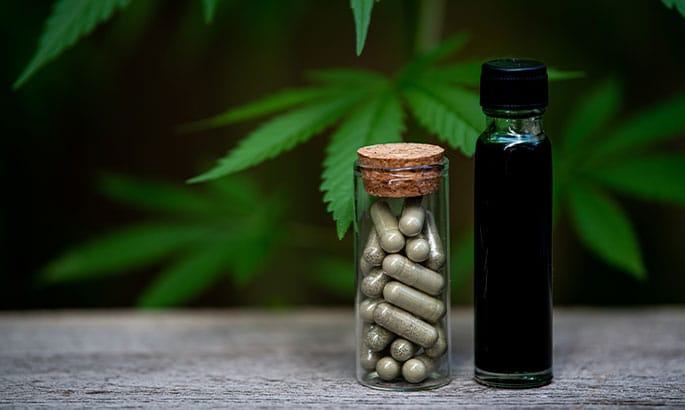Understanding laws related to kratom and CBD has become increasingly important in recent years as people seek natural remedies for physical and mental health conditions. As variations in state legislation complicate the legal landscape of kratom and CBD, it’s essential to stay up-to-date on all the changes happening across the US.
In this article, we will be exploring all you need to know about how federal law and individual state regulations define these two products. We’ll also guide getting trustworthy information regarding legality throughout the United States.
Overview of State Laws Regarding Kratom and CBD Products
In recent years, there has been a growing interest in alternative forms of medicine, including natural remedies such as kratom and CBD products. However, as the popularity of these natural remedies continues to rise, many state laws have been put in place to regulate their use and distribution. In some states, the sale and possession of certain kratom strains are strictly prohibited; in others, it is legal to purchase and use.
Similarly, laws surrounding CBD products vary from state to state, with some allowing CBD oil with less than 0.3% THC, while others prohibit it altogether. Consumers must be aware of the laws in their state when considering using these natural remedies, as failing to do so could result in legal issues. Check out https://www.authentickratom.com/kratom-strains/kali-kratom.html for more info.
Exploring How Regulations Are Shifting Across Different States
Although the regulations regarding kratom and CBD are still in flux, a few states have taken steps to legalize or decriminalize these products. For instance, Oregon recently passed legislation allowing for the possession and sale of certain types of kratom with a maximum THC content under 0.3%. Additionally, many other states have proposed similar laws that expand access to natural remedies such as kratom and CBD products.
As more research is conducted into the safety and efficacy of these substances, more states will likely pass legislation legalizing their use in some capacity. Consumers must keep up with all the changes across different states as the legal landscape shifts.
Understanding the Impact of Federal Law on Local Regulations
Federal law precedes state laws regarding the legality of kratom and CBD products. As such, any regulations passed by individual states must remain in line with federal legislation. For instance, although some states may have passed legislation legalizing certain forms of kratom or CBD products with a THC content under 0.3%, federal law still prohibits possessing and selling these substances regardless of their potency levels.
In light of this fact, staying up-to-date on all changes related to federal laws is essential for anyone who wishes to use and purchase these natural remedies without running into legal issues.
Analyzing the Benefits of Legalization Versus Prohibition
Legalizing kratom and CBD products can provide numerous benefits for consumers and the economy. By making these natural remedies available to individuals throughout the US, more people will have access to potential treatment options for physical and mental health conditions. Additionally, states that have legalized these products may also experience an economic boost as businesses can capitalize on the increased demand for these products.
At the same time, it is crucial to be mindful of any risks associated with kratom or CBD use, such as possible interactions with other medications or underlying medical conditions. It is always wise to consult your doctor before using new substances to ensure safety.
Examining the Pros and Cons of Each State’s Approach to Kratom and CBD Regulations
The laws surrounding kratom and CBD can vary significantly from state to state, and consumers need to understand how their local regulations may affect them. Some states have taken a more lenient approach toward these natural remedies, while others are much stricter. As such, weighing the pros and cons of each state’s approach is beneficial to determine which products you can access safely.
In general, states that have legalized or decriminalized certain forms of kratom and CBD products tend to provide greater access and fewer restrictions on use. However, those prohibiting the sale and possession of these substances may present additional challenges. Knowing your local laws will ensure you remain compliant and safe using these natural remedies.
What Does the Future Hold for US Kratom and CBD Laws and Regulations?
Given the rapidly shifting legal landscape involving kratom and CBD products, it is difficult to predict the future. As more research is into the safety and efficacy of these substances, certain may decide to further expand their regulations for greater access. On the other hand, increasing the federal of these products could decrease local legalization efforts.
Regardless of what changes occur in the years ahead, staying informed about all relevant laws and regulations will help you stay updated on your state’s stance towards kratom and CBD products. This way, you can ensure that you always take proper precautions when using natural remedies such as these.
In Conclusion
The laws and regulations surrounding kratom and CBD products in the US can be confusing, as many states have different stances. As such, it is vital to research your local laws before using or purchasing any kratom or CBD product. Additionally, keeping up with all changes related to federal law will help make sure you remain compliant and safe when using these natural remedies. Lastly, it is wise to be aware of the potential risks associated with kratom or CBD use to ensure your safety and well-being.
